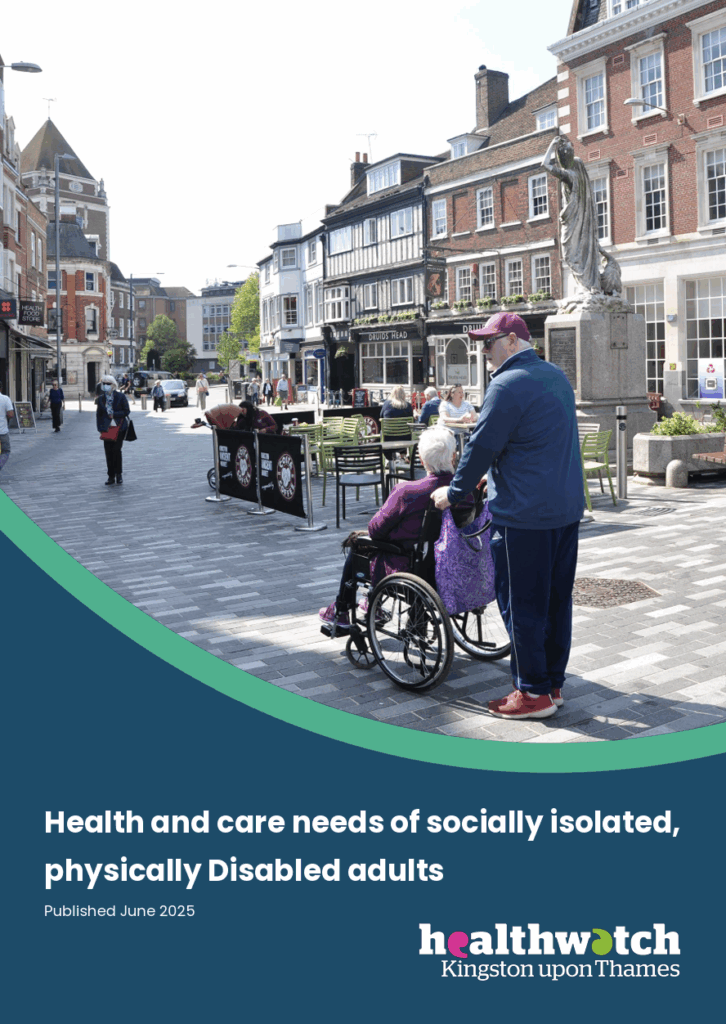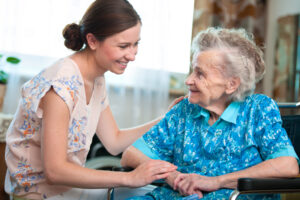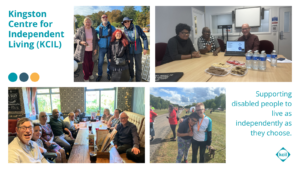Social isolation is a significant issue for many disabled adults, with higher rates of loneliness reported compared to their non-disabled counterparts. Social isolation can have a profound impact on mental and physical health. Healthwatch Kingston spoke to local physically disabled adults to find out more about the obstacles they face in participating in the local community. Local disabled residents reported back that inaccessible public transport, poor communication of what is available and stigma are just some of the factors that limit their ability to be part of the local Kingston community.
KCIL supported Healthwatch Kingston in the creation of the recent report “Health and care needs of socially isolated, physically Disabled adults” published on 13 June 2025.
Key Findings & Recommendations of the report
Through four workshops involving 39 participants, the report highlights:
Significant hurdles in public transport and venue design that restrict mobility and participation.
Feelings of social isolation linked to declining mental health, exacerbated by a lack of accessible community connections and information.
Barriers in digital and physical communication which hinder access to services and community engagement.
To address these challenges, Healthwatch recommends improvements across:
Transport and infrastructure—making public spaces and services more accessible
Service coordination and delivery—ensuring continuity and flexibility
Information channels—both digital and offline, and clear and accessible
Inclusive design and representation—embedding disabled voices in decision-making and planning.
Healthwatch Kingston urges decision-makers—councils, NHS providers, VCSE groups, and transport authorities- to enhance service coordination, improve infrastructure accessibility, streamline information provision, and actively involve disabled people in shaping more inclusive services. These efforts can combat isolation and foster greater community participation.







